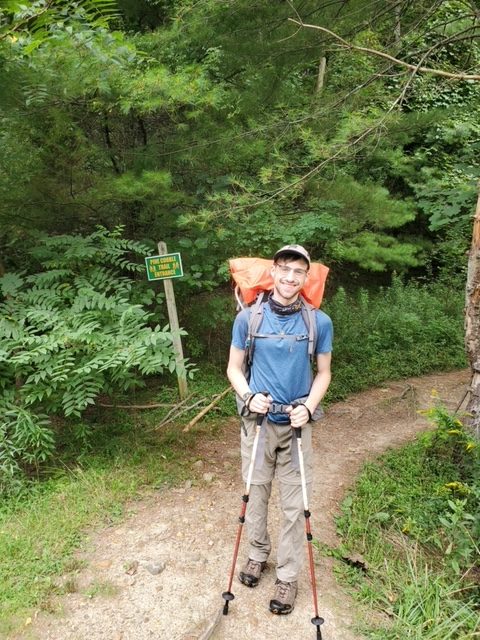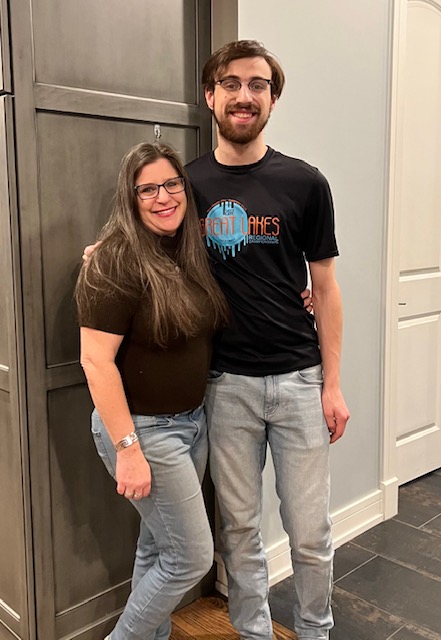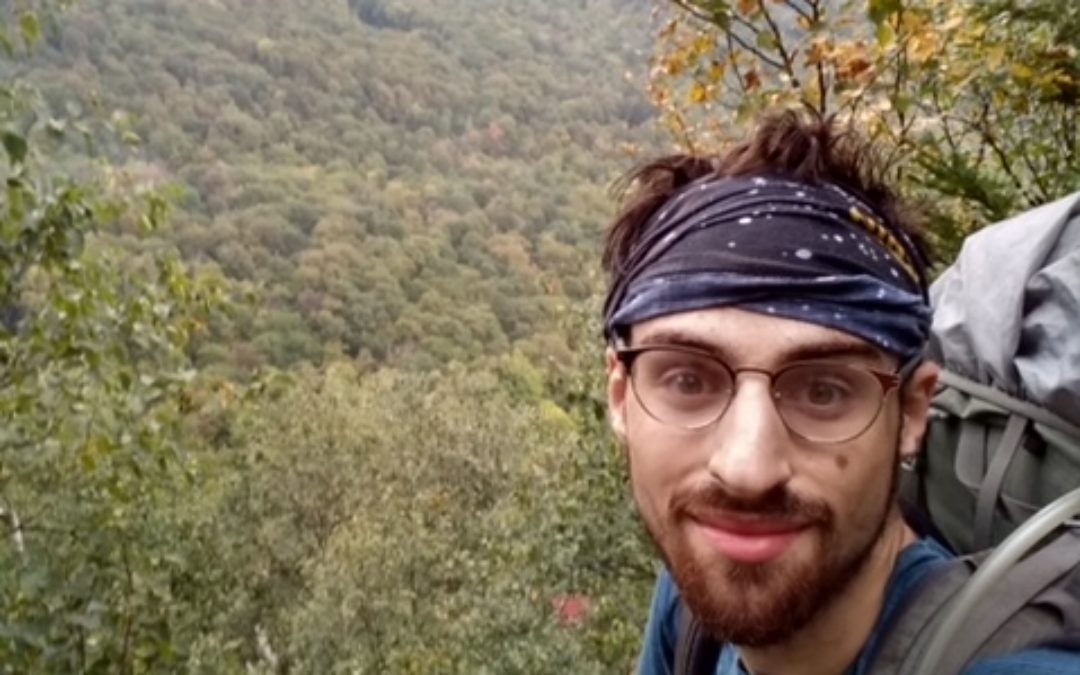After enduring the altitude and the rigors of strenuous hiking in Colorado, Adam Rubinberg returned home and knew something wasn’t quite right. An Eagle scout and outdoor enthusiast, Adam was no stranger to multi-day hikes. But upon returning from a five-day hike with friends in 2019, when he was just 22, Adam was feeling especially fatigued and experiencing new digestive symptoms.
 “While I was used to feeling very tired at the end of a long day, I was just much more drained than usual, and sick.” Adam explains.
“While I was used to feeling very tired at the end of a long day, I was just much more drained than usual, and sick.” Adam explains.
Upon returning home, Adam’s mother, Amy, was equally concerned—particularly since her son was planning to lead another hike on the famed Philmont Trail in New Mexico. Amy immediately helped her son connect with a gastroenterologist, who initially diagnosed Adam with Crohn’s disease. But unlike most patients with Crohn’s disease, Adam also had unusual liver test results. The results of his Alkaline Phosphatase (ALK) test, a liver enzyme blood test which helps diagnose liver and bone disease, showed that his levels were more than 10 times the normal amount, an indication of a serious progressive liver disease: primary sclerosing cholangitis, or PSC.
With this dual diagnosis, Adam’s doctors referred him to David T. Rubin, MD, the Joseph B. Kirsner Professor of Medicine and Chief of the Section of Gastroenterology, Hepatology, and Nutrition; and Michael Charlton, MBBS, Professor of Medicine; Director of Center for Liver Diseases, and Co-Director of the Transplant Institute at the University of Chicago Medicine Digestive Diseases Center. Amy was dazzled by their quick response and personalized attention.
“People come from all over the country to see Dr. Rubin, and here we were, just waltzing in with this red-carpet treatment… Dr. Charlton just took Adam under his wing. He was just so wonderful… Everyone, including the receptionists, nurses, technicians, and other team members has been absolutely welcoming and inspired such confidence. They remembered us, and told us they were praying for our family,” said Amy.
Adam had a difficult course of treatment, including many procedures to monitor and treat his diseases. He worked extensively with Dr. Rubin to find a medical therapy to bring his Crohn’s disease into remission while also exploring treatment options for PSC with Dr. Charlton. After careful calibration, Adam began healing with the biologic Crohn’s medication infliximab. Under Dr. Charlton’s guidance, Adam adhered to a strict diet—no red meat, no alcohol—and learned about options for PSC treatment, which sometimes included liver transplant.
Amy was with Adam every step of the way, says Adam. “She’s been helping a lot with some of the organizational stuff, as far as appointments, and helping me stay on track. My mom is my worrier-in-chief.”
 Adam enrolled in an ongoing clinical trial at UChicago Medicine run by K. Gautham Reddy, MD, Associate Professor of Medicine, and his team, evaluating a potential treatment for PSC. Because the trial is a double-blind study, neither Adam nor his doctors know if he is receiving the treatment or not. But while participating in the trial, Adam received wonderful news: his enzyme levels have returned to normal parameters.
Adam enrolled in an ongoing clinical trial at UChicago Medicine run by K. Gautham Reddy, MD, Associate Professor of Medicine, and his team, evaluating a potential treatment for PSC. Because the trial is a double-blind study, neither Adam nor his doctors know if he is receiving the treatment or not. But while participating in the trial, Adam received wonderful news: his enzyme levels have returned to normal parameters.
For other patients who might confront this double diagnosis, Adam has some reassuring words of encouragement, explaining, “The biggest thing I’d say is that with all the new research and advancements, Dr. Rubin and Dr. Charlton said, ‘You’re going to die with these diseases rather than from them,’ which was hugely reassuring. I know it helped my mom, especially early on.”
Now on infliximab, Adam is planning his longest hike yet—a 5-month, 2,600-mile trek following the Pacific Crest Trail (PCT), the route made famous by Cheryl Strayed’s best-selling book, Wild, and subsequent movie starring Reese Witherspoon. For Adam, his biggest concern is the logistics around scheduling his infliximab infusions on the trail. He also plans to someday return to school to complete an electrical engineering degree.
“I feel great, and I don’t think anything is standing in my way,” says Adam. “It’s been a journey, but I’m very hopeful.”

